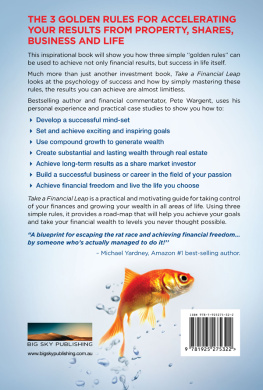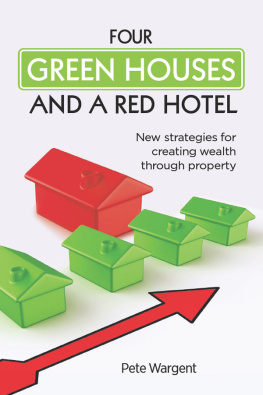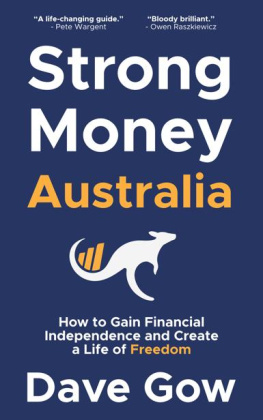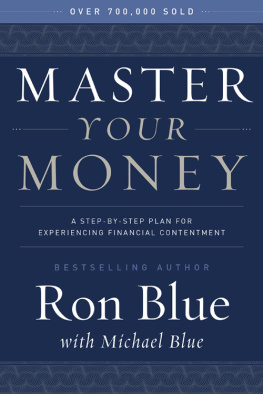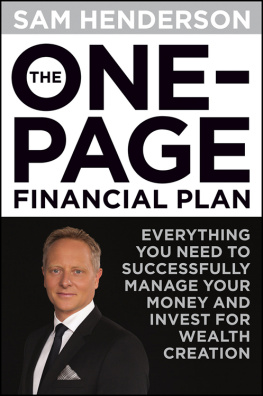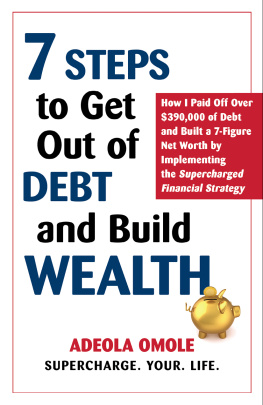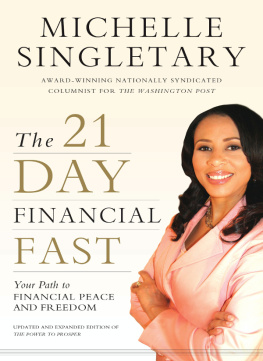
A simple plan for financial freedom

A simple plan for financial freedom

www.bigskypublishing.com.au
Pete Wargent
This book is written to provide competent and reliable information on the subject matter covered. However, I do not operate as a licensed financial advisor.
This book is written on the understanding that the author disclaims any liability from the use or application of the contents of this book. The reader should always consult a financial advisor before making any investment decisions.
Copyright Pete Wargent 2012
First published 2012
Copyright remains the property of the authors and apart from any fair dealing for the purposes of private study, research, criticism or review, as permitted under the Copyright Act, no part may be reproduced by any process without written permission.
All inquiries should be made to the publishers.
Big Sky Publishing Pty Ltd
PO Box 303, Newport, NSW 2106, Australia
Phone: | 1300 364 611 |
Fax: | (61 2) 9918 2396 |
Email: | info@bigskypublishing.com.au |
Web: | www.bigskypublishing.com.au |
Cover design and typesetting: Think Productions
National Library of Australia Cataloguing-in-Publication entry (pbk)
Author: Wargent, Peter.
Title: Get a financial grip : a simple plan for financial freedom / by Pete Wargent.
ISBN: 978-1-921941-80-1 (pbk.)
Subjects: Finance, Personal--Australia.
Saving and investment--Australia.
Dewey Number: 332.02401
National Library of Australia Cataloguing-in-Publication entry (ebook)
Author: Wargent, Peter.
Title: Get a financial grip : a simple plan for financial freedom / by Pete Wargent.
ISBN: 978-1-921941-84-9 (ebook.)
Subjects: Finance, Personal--Australia.
Saving and investment--Australia.
Dewey Number: 332.02401
CONTENTS
Global financial crisis
We are living through a period of great volatility. The worlds economies are fragile, and this makes it more important than ever that you have a financial plan to protect yourself. Despite the gloom that seems to be perpetually portrayed in the financial press, the truth is that recessionary economic times offer outstanding opportunities to those who are prepared. Wealth has not simply been lost in the global financial crisis, it has been transferred, from the financially uneducated to the sophisticated.
We have had global recessions before, and you can be certain that we will have them again, because economies move in cycles. The facts and the specifics may change, but the patterns are similar. The losers in financial crises will continue to be the same: those who try to save their cash (inflation will quickly eat away at the value of savings), the inflexible, people with extravagant spending habits, those approaching retirement with much of their wealth in a managed accumulation fund and, particularly, many of those with a total dependence on a job for income. Having all your eggs in one basket a job is a potentially dangerous approach to personal finance.
So who will the winners be? The winners will be those who have the financial education to spot opportunities, and those with multiple income streams. Winners will also include people with moderate spending requirements and those who are prepared to be flexible. Winners are generally not dependent on highly taxed salaries to increase their wealth. Stock-market meltdowns offer amazing opportunities to those who are able to time the market. Property investors, too, will take advantage of fear to invest counter-cyclically and will capitalise on the low interest rates that often result from a recession.
It is important to be in tune with the financial markets. By the time you read about a hot stock or a flying property market in the media, it is probably too late. Besides, the press print an awful lot of doom and gloom, as it seems to sell newspapers. If you believed everything you read in the press, you would probably never invest at all.
What is not good enough is to blame the government, your fund manager, or your employer for your financial predicament. You must take responsibility for your own financial health and wellbeing. One of the seven Buddhist factors of the path to enlightenment is mindfulness, an awareness of reality and clear understanding. Just as to avoid becoming obese we must be mindful of our diet, to become wealthy and financially free we must apply mindfulness to our finances. The first step is accepting that your financial health is your own responsibility.
Financial freedom
The aim of this book is to introduce a specific financial plan to take you from wherever you are today to financial freedom in only a few years, depending on the somewhat unpredictable timing of economic cycles and your personal circumstances. If your goal is escaping the rat race of reliance on full-time employment, then the principles I will detail can surely be applied by anybody, provided that you have a strong determination to succeed and a reasonable level of discipline.
There are a large number of financial self-help books on the shelves written by acclaimed and self-proclaimed gurus, so many in fact that for many people it seems impossibly difficult to know where to begin. The solution is to identify what your goals actually are, and then to start with the end in mind.
Many financial tomes are written by 50-somethings and 60-somethings who detail how they have made their millions, and decree that younger folk should be following their way. In my experience, a significant percentage of my generation and younger generations dont want financial freedom as a 50-something or a 60-something. In many cases, they are already disillusioned with long hours, ungrateful employers, high tax rates and expensive cities; they desire to be free from the rat race right now, or at least as soon as is realistically possible. You dont need me to tell you this. You already know, because you have seen the queues for Powerball and Lotto tickets.
In order to achieve financial freedom before the traditional retirement age, you will need to engage a different financial plan to those suggested by financial advisors. Taking ten per cent of your net salary and investing in a swathe of managed funds, a diversified portfolio of shares and fixed interest investments may indeed be a sensible thing to do, but it will certainly fail to propel you to financial freedom quickly. Instead, you will need to employ some leverage of other peoples time and other peoples money, you will need to apply focus rather than wide diversification and you will need to expose yourself to a controlled level of risk.
This book will introduce you to that plan. It is not a get rich quick fad. Financial texts and seminars that promise you instant wealth are often those that are best avoided. Instead, this is a plan that takes time-tested principles of wealth creation and applies them to the Australia of today. Its a plan I have used myself to make myself a millionaire and to quit full-time work at the age of 33. Not having to work for someone else unless you choose to do so is a wonderful place to be, so lets take a look at how you can get there too reasonably
Next page

